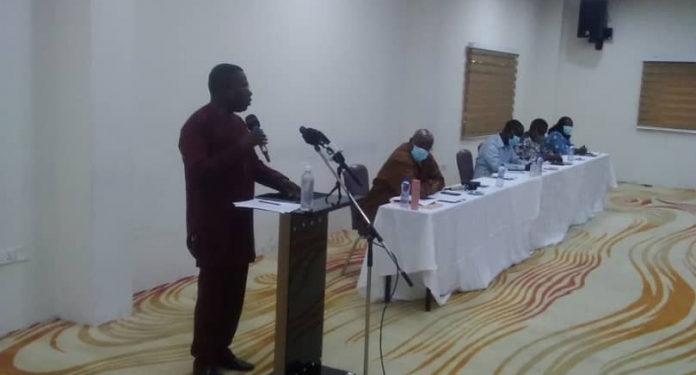Mr Christian Nti, Deputy Chief Executive in-charge of Maintenance, Ghana Highway Authority (GHA) has said a 21st Century road engineer needs to be smarter, tech and scientific savvy in order to deliver on quality and timeously.
He disclosed that a GHA-home designed software had been developed to serve as a reporting platform for engineers to provide accurate information on projects on a timely basis.
Mr Nti was speaking at the opening ceremony of the 2020 Road Maintenance Seminar and Road Condition Survey Refresher Course for Road Maintenance Engineers across the country in Ho.
The five-day programme is themed, “The Role of the Road Engineer in the Supervision-Chain: To Achieve Value for Money,” is targeted at sharpening the skills of engineers and eliminating inefficiencies in project delivery.
He said the software would bring into focus updates of scope of work, percentage of work and general status and progress of road constructions for easy tracking.
The Deputy Chief Executive said the approach to work and the methodology to achieve value for money must be streamlined to induce efficiency and eliminate wastages at all levels.
He said roads had become the spinal cord of development and the engine that feeds all spheres of the development-chain be it agriculture, housing, tourism, economy, health, trade or commerce and the critical artery to open up a country for growth regimes.
He said it behooved on engineers to maintain that value for money was derived from the scarce resources available for road project from the government or development partners urging the engineers to be meticulous and eliminate wastages.
He urged them to be guided by the ‘triple constraints’ mantra involving cost, scope and time in the build up to road contracts or projects adding that a change in the variables affect a redirection or change in the equation.
Mr Nti urged the engineers to work within budget, avoid unnecessary variations and be mindful of the need to protect the national purse.
He reminded them that all road projects are controlled by a legal framework and therefore engineers must act within that scope, demand project execution plans from contractors, organise conception meetings and avoid not fit-for-purpose drains, while making sure signages were provided for public safety on project sites.
Maama Sawyerr-Markwei, Director of Road Maintenance, GHA said monitoring and supervision were key in road construction if value for money was to be observed.
He said the nation’s road maintenance regimes take the form of routine pothole patching and periodic maintenance, when there is deterioration of works done.
He observed that rainwater in the form of run-off or water in general is an enemy to engineered roads saying the need to safeguard the longevity of the investment is imperative.
Mr Sawyerr-Markwei said speed tables or ramps are being factored or incorporated into the scheme of road construction as a safety policy to avoid the needless knockdowns resulting from speeding vehicles, which flouted road signage.
Mr Harold Atobra-Acheampong, Acting Volta Regional Director of GHA believed the course would facilitate broader supervisory skills among engineers to raise the quality of projects delivery with eyes on value for money.
He requested that critically demanding roads should be re-engineered or re-packaged as conditions of the region’s roads dips.










Discussion about this post